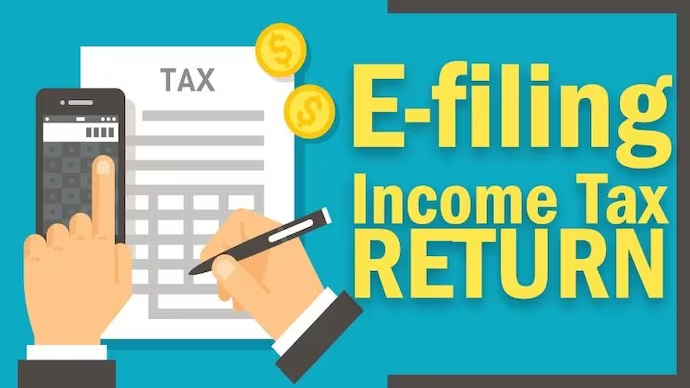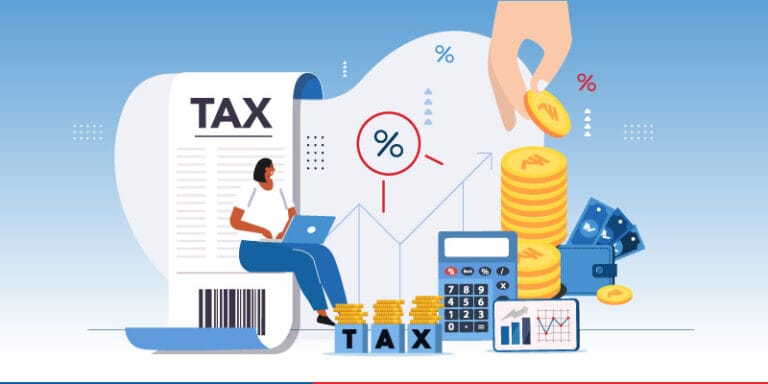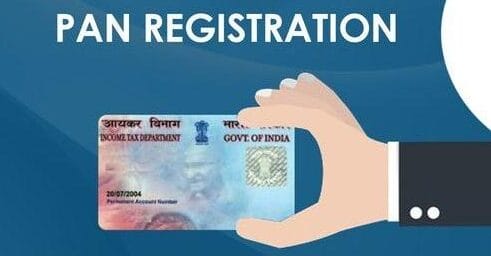Filing an income tax return (ITR) is a mandatory annual process for individuals and entities whose income exceeds the exempted threshold set by the Income Tax Department of India. It involves reporting your annual income, claiming deductions, and paying any taxes due. Here’s a detailed overview of the income tax return filing process in India:
Who Needs to File an ITR?
1. Individuals
- With income above the basic exemption limit.
- Who wish to claim a refund.
- Who have foreign assets or income.
- Receiving income from property held under a trust.
2. Hindu Undivided Families (HUFs)
- Earning above the exemption limit.
3. Corporates
- Regardless of income level.
4. Partnership Firms and LLPs
- Associations, trusts, and societies earning income.
Basic Exemption Limits for FY 2023-24
- Individuals below 60 years: ₹2,50,000
- Senior Citizens (60-80 years): ₹3,00,000
- Super Senior Citizens (above 80 years): ₹5,00,000
Types of ITR Forms
- ITR-1 (Sahaj):
- For individuals with income up to ₹50 lakh from salary, one house property, and other sources.
- ITR-2:
- For individuals and HUFs with income from sources other than business/profession.
- ITR-3:
- For individuals/HUFs having income from business/profession.
- ITR-4 (Sugam):
- For individuals, HUFs, and firms under the presumptive income scheme with income up to ₹50 lakh.
- ITR-5:
- For partnership firms, LLPs, AOPs, and BOIs.
- ITR-6:
- For companies other than those claiming exemption under Section 11.
- ITR-7:
- For persons and entities required to furnish returns under Sections 139(4A), 139(4B), 139(4C), or 139(4D).
Steps for Filing Income Tax Return
1. Gather Documents
- Form 16/16A: Salary and TDS details.
- Form 26AS: Annual tax statement.
- Bank statements, interest certificates.
- Investment proofs for deductions.
- Property details and rental income.
- Details of other income sources.
2. Choose the Correct ITR Form
- Select the appropriate form based on your income sources and eligibility.
3. Log In to the Income Tax e-Filing Portal
- Visit Income Tax e-Filing Portal.
- Register using your PAN if not already registered.
- Log in with your user ID (PAN) and password.
4. Fill in the ITR Form
- Download the form (if filing offline) or use the online form.
- Fill in personal details, income details, tax paid, and deductions claimed.
5. Validate the Form
- Check all entries for accuracy.
- Use built-in validation to correct errors.
6. Calculate Tax
- Compute your tax liability based on the filled-in information.
- Pay any outstanding tax through challan ITNS 280.
7. Submit the ITR
- Upload the XML file (for offline forms) or directly submit online.
- Verify the return through Aadhaar OTP, net banking, or sending a signed ITR-V to CPC, Bengaluru.
8. Receive Acknowledgement
- An acknowledgment (ITR-V) is generated on successful submission.
- E-verify the ITR-V or send the physical signed copy to CPC within 120 days.
Due Dates for Filing ITR
- Individuals and HUFs: July 31 of the assessment year.
- Businesses requiring audit: September 30 of the assessment year.
- Businesses under Transfer Pricing: November 30 of the assessment year.
Penalties for Late Filing
- Up to ₹5,000 if filed after the due date but before December 31 of the assessment year.
- Up to ₹10,000 if filed after December 31.
- For taxpayers with income up to ₹5 lakh, the penalty is limited to ₹1,000.
Benefits of Timely Filing
- Avoid Penalties: Prevent late filing fees and interest charges.
- Claim Refunds: Timely refunds for excess taxes paid.
- Loan Approvals: Essential for loan and visa applications.
- Carry Forward Losses: Eligible to carry forward losses for future adjustments.
- Compliance: Staying compliant with tax laws and avoiding legal issues.
In Conclusion, filing income tax returns in India is a critical annual obligation for taxpayers to ensure compliance with tax laws and regulations. Understanding the process, selecting the correct ITR form, and adhering to due dates are crucial for a smooth filing experience. Professional advice can be sought for complex tax situations to ensure accuracy and optimize tax benefits.
At Ujjwal Gupta & Co
We, at Ujjwal Gupta & Co, are dedicated to delivering personalized, high-quality solutions tailored to meet your financial and business needs. With our team of professionals and a client-first approach, we ensure that every challenge is met with expert guidance and strategic insight.
We are dedicated to ensuring your business’s success by providing best service practice available in the industry and that too at a cost effective pricing. Our team of experts is excited to work with you and provide the support you need to thrive in the Indian business landscape.
Our only motive is to create Value for Our Clients and accordingly, have a Client Value System at our Office.
So, let us help you navigate the complexities of finance and compliance, empowering you to focus on what matters most — growing your business. Get in touch today, and take the first step towards financial peace of mind.
If you are a company (includding registered companies, limited liability partnerships, and any other body incorporated under any law for the time being in force), limited liability partnership or any other entity specified by government looking to reorganize or for the resolution of insolvency then IBC is applicable to you. IBC guarantees a time bound resolution of all these mattersand provides maximization of value of corporate debtor’s assets, promotion of entrepreneurship, credit availability and importantly balances interests of all stakeholders
Insolvency Resolution Process or IRP can be initiated by creditors of the corporate debtors, consisting of the financial creditors, operational creditors, or the corporate debtor itself. Once an IRP is initiated, a moratorium period is imposed to prevent any legal action against the debtor.An insolvency professional manages the process and invites resolution plans from prospective resolution applicants. Finally, NCLT adjudicates on the approval of the resolution plan.
National Company Law Tribunal or NCLT is responsible for admitting or rejecting insolvency applications, appointing insolvency professionals and overseeing the insolvency process. National Company Law Appellate Tribunal or NCLAT also plays a crucial role in implementation and adjudication of matters under IBC.
Insolvency Professional or IPs are licensed professionals who manage the affairs of the debtor during the insolvency process, acting as an intermediary between creditor and debtor.
Like any law there are operational challenges in the implementation of the resolution process. A big reason is that interests of various stakeholders such as operational creditors, workmen/employees and even the promoters needs to be balanced to reach a resolution. Then there are legal complexities of the law and the various judicial interpretation that arises with it that can complicate matters sometimes.
If the Insolvency Process fails, then the entity goes into liquidations. The proceeds from liquidation are distributed among the creditors of the corporate debtor in a specific order of priority.
Why Choose UGC?

Client Centric Approach
Client is the key driver of our service offerings. Our approach to service offerings is based on a client centric and customized approach. Our specialized teams are a mix of technical and industry experience in order to serve clientele for their specific needs.

Team Work
We have built high performing teams supported by strong work ethic. Our team is a mix of experts, professionals and support staff from technical and varied academic, social and ethnic backgrounds. We believe diversification plays a vital role in motivating the team.

Quick Turnaround
We always endeavour for a quick turnaround time to serve our clientele. We are supported by an experienced and client focussed support teams to offer timely services to our clientele. In case of any business exigencies and time sensitive service requirements, you can always count on us.

Open Communications
We believe that open communication is the core principle in order to demonstrate trust, build long lasting and valuable relationships with clientele. We are committed to ensuring transparency in communication, service offerings and delivery. Our only motive is to provide professional services to our clients.

Client Value System
We value for the Client time and thus, we offer services that are value for money. Quality professional services are provided to our clients, so that they are able to achieve their desired results. We are a quality trademark in the industry and thus, our clients count on us always.

Quality in Delivering Work
Our service offerings are driven by quality and reviews at every level. We strive to provide a qualitative and value-added delivery to our clientele. At all times, we endeavour to provide exceptional client service by meeting client expectations and driving client satisfaction.




















